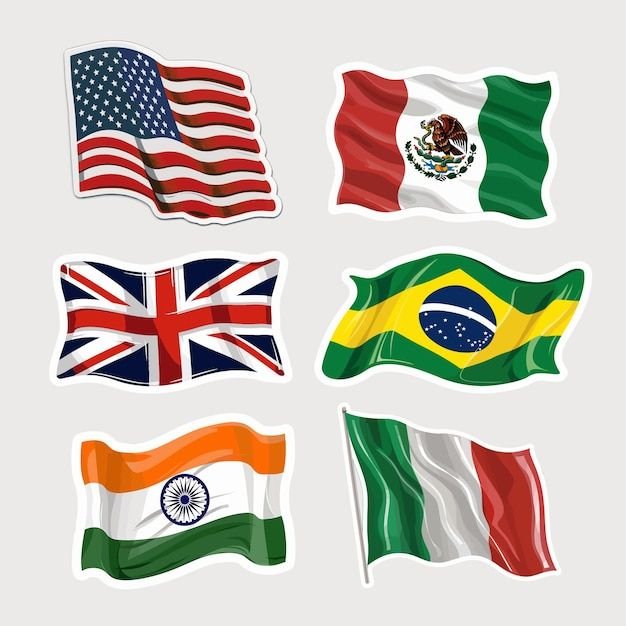For decades, the idea of the “Western” lifestyle has been the gold standard, a beacon of progress and stability. Yet, a new breed of man, the digital nomad, the “passport bro” is challenging this orthodoxy, looking beyond the West for a better quality of life. This shift isn’t born of romantic notions, but of a pragmatic, sometimes cynical, calculation of costs, opportunities, and cultural fit.
The Cost-of-Living Calculation: A Tale of Two Budgets
In the West, particularly in major cities, the cost of living has become an almost insurmountable barrier for many. Rent, groceries, healthcare, and daily expenses consume a disproportionate amount of a man’s income, often leaving little for savings or investment. The middle class is squeezed, and the dream of homeownership becomes an increasingly distant mirage.
By contrast, living abroad in places like Southeast Asia, Latin America, or Eastern Europe offers a remarkable financial arbitrage. A modest salary from a Western company can provide a luxurious life. For example, a monthly housing budget that might afford a cramped apartment in a Western city can secure a spacious, modern flat in a place like Lisbon or Bangkok. Groceries and daily expenses are often a fraction of the cost, and everyday services, from haircuts to healthcare, are surprisingly affordable. This isn’t about living like a pauper; it’s about trading a high-stress, high-cost existence for a comfortable life with more disposable income and a greater ability to save and invest.
The Cultural Trade-Off: Isolation vs. Immersion
Culturally, Western living offers a certain comfort and familiarity, but it often comes with a subtle yet pervasive sense of isolation and a frayed social fabric. The focus on hyper-individualism and a fast-paced lifestyle can leave men feeling disconnected and without purpose. Many find themselves in a constant state of competition and social pressure to “keep up with the Joneses.
International living, on the other hand, often plunges you into a world with stronger community bonds and a slower pace of life. You’re forced to step out of your comfort zone, which can lead to incredible personal growth and a new perspective on the world. However, this is not without its challenges. There’s often a **language barrier**, and fully integrating into a local culture can be difficult. You may struggle to form friendships outside of an expat community, and in many places, you will always be considered an outsider. This can lead to a sense of rootlessness, as you lack a true “home base” or deep, lasting connections. You may find that while you’re surrounded by people, you’re still alone.
Hustle Culture Unplugged: The Reality of Digital Nomad Life
The curated image of the digital nomad is a potent one: a laptop on a white-sand beach, a cocktail in hand, and a life of effortless freedom. This is the aspirational vision sold on Instagram and TikTok, but the reality is often more complex, more grueling, and far less glamorous. The “hustle culture” that underpins this lifestyle is a double-edged sword, promising freedom while often delivering a different kind of servitude.
The Unseen Hustle: The Grind Behind the Glamour
The truth is, for most digital nomads, the beach is a terrible place to work. The glare on the screen, the sand in the keyboard, and the unreliable Wi-Fi make it impractical. Instead, their reality is a constant search for stable internet, a functional workspace, and a routine that can be hard to maintain when you’re always on the move. They often work long hours, late into the night, to accommodate clients in different time zones, and the “freedom” they seek is often replaced by the anxiety of constantly chasing the next contract or client.
The relentless pressure to maintain a social media presence, to “show the dream,” can also be exhausting. Many nomads find themselves working more than they ever did in a traditional office job, all while trying to project an image of effortless success. This leads to burnout, mental fatigue, and a strange sense of loneliness that comes from being constantly surrounded by new faces but never truly building deep, lasting connections. This is a life of **transience**, where the endless journey becomes a substitute for finding genuine purpose and community.
The Freedom Trap: The Pitfalls of a Transient Lifestyle
While the lifestyle offers the freedom to travel and experience new things, it also traps many in a cycle of impermanence. The constant relocation can prevent them from building a stable social circle, and the lack of a permanent home can lead to a sense of rootlessness. For those who romanticize the idea of “escaping the West,” the digital nomad lifestyle can become its own kind of cage, where the endless journey becomes a substitute for finding genuine purpose and community.
Furthermore, the logistical challenges are often overlooked. Navigating visas and tax laws in multiple countries can be a bureaucratic nightmare. The constant need to make decisions; where to go next, where to live, what community to join, can lead to decision fatigue. The initial excitement of travel can eventually give way to “travel burnout,” where even the most beautiful sunset or the most exotic location fails to spark joy.
In the end, the digital nomad lifestyle isn’t a magical solution to the problems of modern life. It’s a choice that requires immense resilience, a strong work ethic, and a willingness to confront the stark realities behind the social media facade. For those who succeed, it’s a testament to their grit, not a guarantee of a perfect, sun-soaked life.
Juliet.













